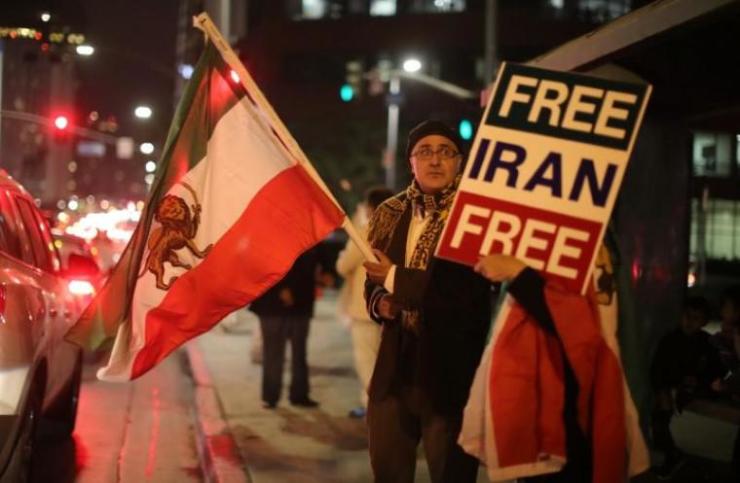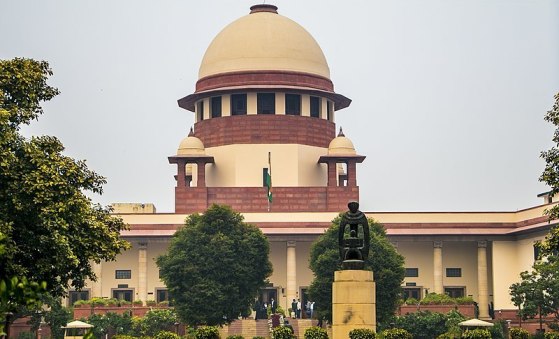
Videos and other evidence suggest that the Iranian regime could have murdered as many as 1,000 unarmed Iranian protesters since anti-government demonstrations began in November, a Trump administration official has said.
Special Representative for Iran and senior advisor to the secretary of state Brian Hook spoke with reporters last week about the ongoing situation the Islamic Republic, where protests have shaken cities across the country in opposition to rising fuel prices and the theocratic Shia regime.
In his opening remarks, Hook stated that the agency has seen reports since the internet was reconnected in Iran of hundreds being killed in and around the capital, Tehran.
"And as the truth is trickling out of Iran, it appears the regime could have murdered over a thousand Iranian citizens since the protests began," Hook said. "We cannot be certain because the regime blocks information. Among those murdered are at least a dozen children, including 13 and 14-year-olds."
According to Hook, thousands of protestors have been wounded while at least 7,000 have been detained in prisons.
Hook added that reports have indicated that when family members tried to recover dead bodies, authorities have demanded they "pay the cost of the bullets they used" to kill their loved ones. In many, cases, Hook said, authorities would not hand over the bodies unless families promised not to hold public funerals.
In one reported case, a family was forced to pay $8,000 and commit to saying that their son was part of a state militia who was killed by protesters before they could receive his body.
Hook was questioned later in the press conference about his assertion that it is possible that over 1,000 people may have been killed. The United Nations recently reported that the death toll to be at least 208.
Hook explained that the figure is based in part on a collection of "crowdsourcing intelligence reports from groups that have been publishing the death toll."
"As the regime has slowly restored the internet, we have more videos and more information leaking from the country," Hook said. "And so we know for certain it is many, many hundreds, and if you remember in the 2009 Green Revolution, which I think lasted for 10 months, you had, if memory serves, 72 people who were killed."
"And we are now at the many hundreds, perhaps over a thousand," he added. "Look, we had protests in a hundred cities, and we saw how the regime responded. The supreme leader referred to his own people as thugs, and this was a brutal crackdown. And so as more information comes in, we will continue to update you on the numbers, but that's what we have now."
Since the internet was restored in Iran, many unverified videos have surfaced that appear to show security forces attacking protesters. Meanwhile, other videos showed protesters damaging government buildings, banks, and gas stations, according to The Wall Street Journal.
Hook detailed one incident that occurred on Nov. 16 when demonstrators blocked a road in the southwestern city of Mahshahr.
"The State Department has received videos of what happened next. Without warning, the [Islamic Revolutionary Guard Corps] opened fire on the protesters, killing several people," Hook explained. "Many of the protesters fled to nearby marshlands to escape. The IRGC tracked them down and surrounded them with machine guns mounted on trucks. They then sprayed the protesters with bullets."
"Between the rounds of machine-gun fire, the screams of the victims can be heard," Hook continued. "In this one incident alone, the regime murdered as many as a hundred Iranians and possibly more. When it was over, the regime loaded the bodies into trucks. We do not yet know where these bodies went, but we are learning more and more about how the Iranian regime treats its own people."
Last week, President Donald Trump accused Iran of killing "thousands of protesters" and called on the international community to take notice during his trip to London for a NATO summit.
"That is why they cut off the internet so people can't see what is going on," Trump said, according to Reuters.
According to Hook, many protesters were sent to the Great Tehran Penitentiary known for its inhumane living conditions or Qarchak Prison, the largest women's prison in Iran that holds a number of religious minority communities and is also known for "unbearable conditions."
"We have seen reports that protesters have been subject to abuse and mistreatment during interrogations, arbitrary beatings, and rape," Hook said.
Hook called for the release of all detained protesters and all political prisoners held by the regime.
"There has been overwhelming support for the Iranian people by the American people," Hook declared. "It is clear there is a bipartisan consensus that the regime's treatment of the Iranian people is abhorrent and unacceptable. We are unified here in the United States, and the international community likewise should be unified and support the Iranian people."
For years, the U.S. State Department has labeled a "country of particular concern" for egregious religious freedom violations.
Iran is currently ranked as the ninth-worst country in the world when it comes to Christian persecution on Open Doors USA's 2019 World Watch List.
According to Open Doors, Christians are forbidden from sharing their faith with non-Christians and converts from Islam regularly face persecution from the government.
Many Christian converts have been sent to prisons such as Iran's notorious Evin Prison, where they have been subject to abuse.
Recently, concerns were raised that an Iranian Christian convert serving 10 years in Evin Prison for practicing his faith has been denied medical treatment despite his deteriorating health.
"Together with many Christians around the world, we are closely following Saheb's situation and are concerned about his deteriorating health," Article 18 advocacy director Mansour Borji said in a statement. "The Iranian authorities must stop this repeating pattern of neglect and denial of medical treatment for prisoners of conscience. Saheb has a wife and a daughter who are looking forward to him returning home in full health."
Courtesy of The Christian Post.




